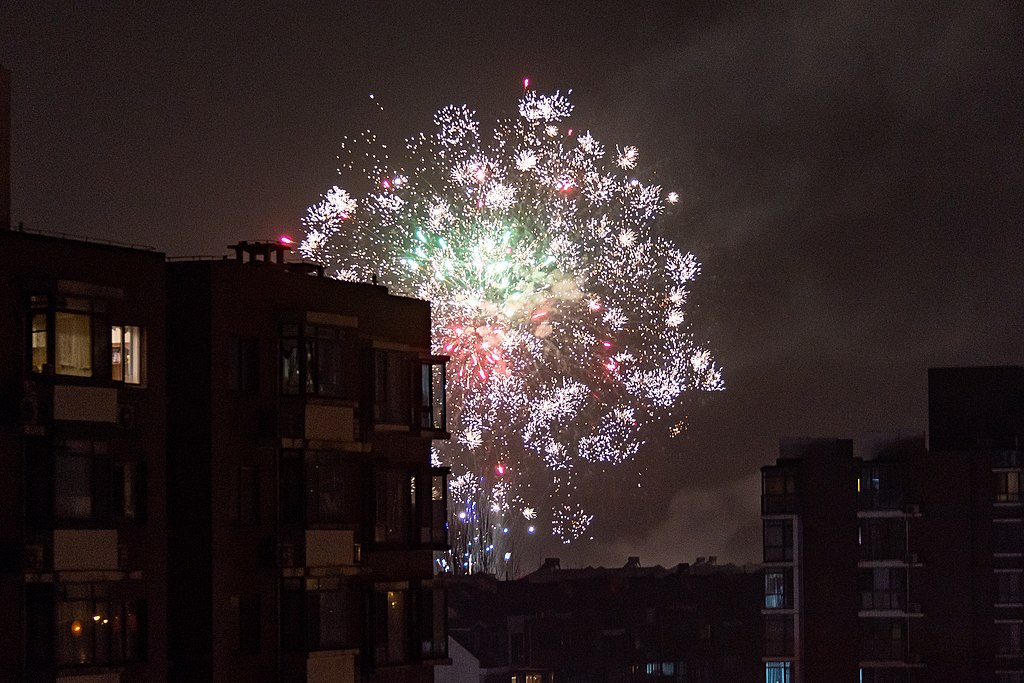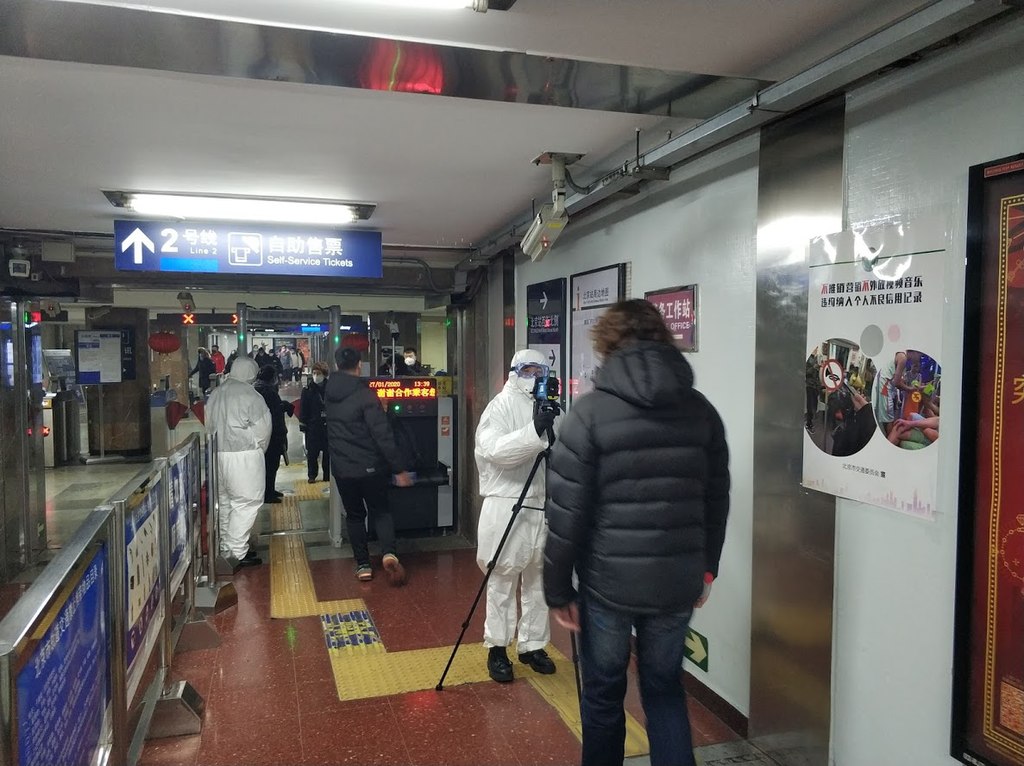Beijing, China —(Map)
Lunar New Year, China’s most important holiday, began last Friday. Normally, hundreds of millions of people would be traveling around this time. But this year, because of the coronavirus, many Chinese people are simply staying home.
Chinese/Lunar New Year
Lunar New Year, or Chinese New Year, falls between January 21 and February 20. The exact time depends on when the new moon appears during that time. This year, it began last Friday, February 12. Since the holiday celebrates the end of winter and the beginning of spring, it’s also known as Spring Festival.
😕
This image has not been loaded because of your cookie choices. To view the content, you can accept 'Non-necessary' cookies.
Lunar New Year, or Chinese New Year, falls between January 21 and February 20. The exact time depends on when the new moon appears during that time. This year, it began last Friday, February 12. Above, a decorated street near a lake in Beijing last Friday.
During a 40-day period around the holiday, hundreds of millions of Chinese people normally travel to their home towns to be with their families. Many Chinese people only get one chance each year to see their family.
Now they’re being asked to give that up. This year, because of the coronavirus, China’s government and many businesses are asking people to stay home.

(Source: N509FZ [CC BY-SA 4.0], via Wikimedia Commons.)
This is the second year in a row that the coronavirus has affected Spring Festival celebrations. Last year, the New Year began at about the same time the coronavirus was exploding in Wuhan. Many Chinese cities canceled public celebrations of the holiday.
But by then, many people had already begun traveling. This led to the virus spreading across the country.

(Source: Pau Colominas [CC BY-SA], via Wikimedia Commons.)
Since then, China has taken extreme measures to keep the coronavirus under control. Over and over again, it has locked down huge cities to control outbreaks of the disease. It has required coronavirus tests and temperature checks, and done a good job of trying to find everyone affected by these outbreaks.
Even so, it has struggled with repeated outbreaks of the virus. Just last month, the country had several thousand new cases – more than it’s had in about 10 months. Millions of people were locked down in several different areas of the country.
😕
This image has not been loaded because of your cookie choices. To view the content, you can accept 'Non-necessary' cookies.
Last month, the country had several thousand new cases – more than it’s had in about 10 months. Millions of people were locked down in several different areas of the country. Above, workers in Beijing try to kill germs during a partial lockdown in January.
China is one of the few countries that has gotten most of its businesses going well again after the coronavirus. The government doesn’t want an even bigger outbreak to ruin that progress. That’s why it’s hoping to limit travel as much as possible.
The people most affected are China’s migrant workers – about 300 million people who left their home towns to find work in places far from their families.
Though the government hasn’t made it against the law to travel, it is strongly encouraging people to stay put. It has added rules about testing and quarantines that could make it much harder for people to visit their families. It is also suggesting that people can show that they love their country by not traveling.
😕
This image has not been loaded because of your cookie choices. To view the content, you can accept 'Non-necessary' cookies.
It isn’t against the law to travel, but China’s government is encouraging people to stay put. It has added rules for testing and quarantines that could make it much harder for people to visit their families. Above, the main railway station in Beijing last Thursday.
Many people are angry about the government’s decision. To help make the unpleasant news easier to take, the government has encouraged businesses and local governments to offer rewards to people who stay.
In Suzhou city, near Shanghai, for example, the local government is offering people who live there about $77 for not traveling. Other cities have offered free movie tickets, and coupons for shopping or food.
😕
This image has not been loaded because of your cookie choices. To view the content, you can accept 'Non-necessary' cookies.
In Suzhou, the government is offering money to people who don’t travel. Other cities have offered movie tickets, and coupons for shopping or food. Above, people in Shanghai take pictures by a statue of a bull. This is the Year of the Ox in the Chinese zodiac.
The plan seems to be working. Many train stations that would normally be packed at this time of year are now nearly empty. The number of people flying has also dropped.
Did You Know…?
One thing Chinese people are doing instead of traveling is going to the movies. In China, movie theaters re-opened last July. Over this last weekend, a movie called “Detective Chinatown 3” earned $397 million, setting a new movie sales record.
😕
This map has not been loaded because of your cookie choices. To view the content, you can accept 'Non-necessary' cookies.
